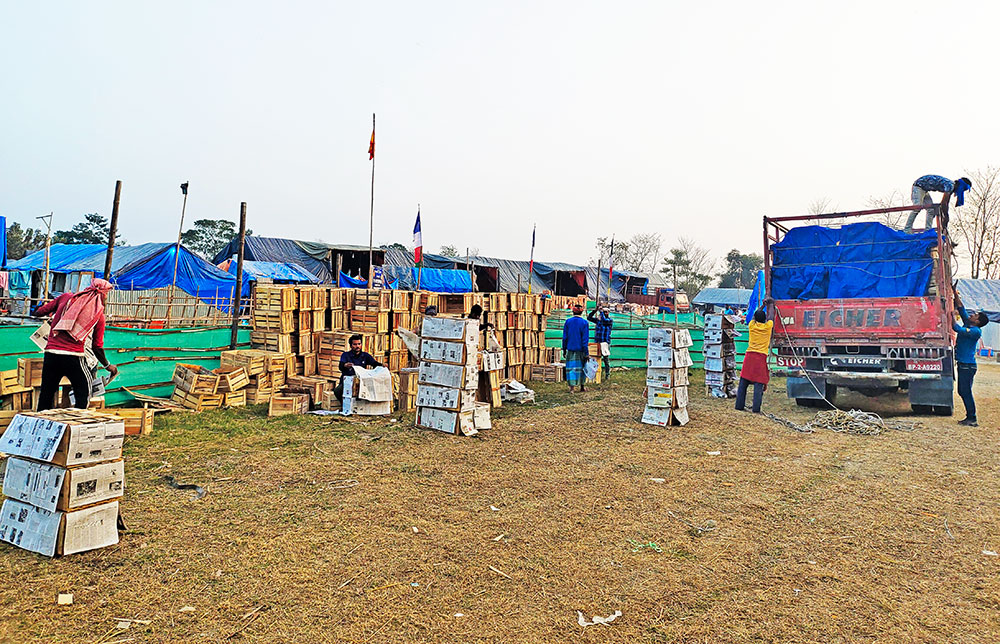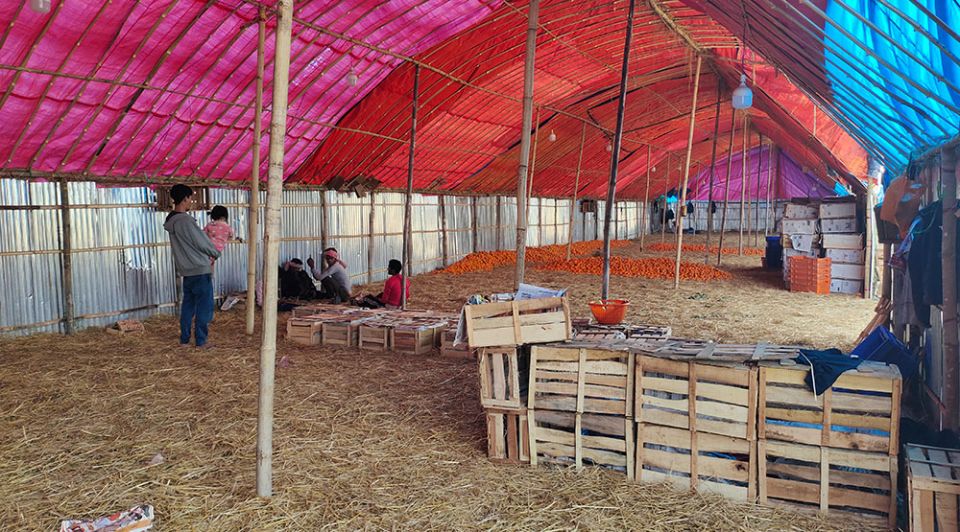
After two weeks of grappling with a shortage of wooden crates during the peak of export season at the Gelephu orange depot, exporters have been permitted to import the crates from India.
The move comes as the biggest relief to mandarin exporters, as they were concerned about potential delays and damage to their produce.
Chimi, an exporter from Paro, said the issues were resolved after reaching the highest authority.
“We expect to be allowed to import wooden crates every season. Now, we don’t expect the same issue will arise every season.”

Mandarin orange export is in full swing in Gelephu and 50 percent of the goods has been dispatched to date
Mandarin exporters purchase crates at Nu 95 each from the local sawmill and Cooch Behar, India. However, Chimi added that importing is more convenient because of various issues associated with the local sawmill supply. For instance, he said, transporting a truckload of crates from Haa or Paro costs over Nu 40,000, whereas it is only Nu 8,000 per truck from India.
“Officials held about seven meetings with exporters, yet no action has been taken to address the issues,” Chimi said, adding that his mandarins suffered around Nu 200,000 in damages during that period.
Sangay, another exporter from Paro, said that he imported 10,000 wooden crates after they were allowed to be imported from India. “I require about 1,300 crates daily for grading and packaging. I paid an advance for the production of 20,000 crates, but the sawmill has only supplied 16,000 crates so far.”
The shortage emerged after the government stopped crate imports from India last year. However, the local sawmill operators could not meet the demand as agreed upon during the meetings.
As the mandarin exporters, sawmills, the Bhutan Chamber of Commerce and Industry, and the Association of Wood-Based Industries agreed to use local crates this year, the exporters paid in advance to the sawmill operators.
“During the last meeting, the Wood Machinery at Dechenpelri (Edi) agreed to supply 700 crates each to nine exporters by January 10, but only three exporters have received 174 crates each. We were required to make a 50 percent payment in advance,” said Sangay.
Another frustrated exporter says that the intervention of the concerned authorities has exacerbated their issues rather than facilitating and resolving them. “We are concerned if the relevant authorities will help in recovering our advance payments from the sawmill operators,” he said.
“We were not given a chance to voice our concerns during the online meeting. They imposed directives without visiting and understanding the situation, which didn’t go well,” said another exporter.
The exporters also argue that the import restriction on wooden crates was implemented without proper on-the-ground research and understanding of the actual situation.
“There are only three sawmill operators in Gelephu. If the government wants us to buy crates from local sawmills, there should be a sustainable measure to ensure a smooth process,” said Chimi. “With the restriction in place, we will forever be bogged down with the same issues.”
There are 13 orange exporters in Gelephu. Last year, because the local sawmills were unable to meet the required supply, imports totaled Nu 25.5 million when sawmill operators couldn’t meet the demand.












